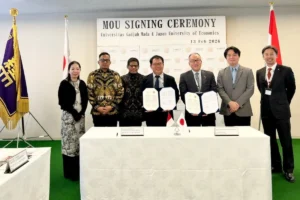China urges Japan to properly handle issues related to Fukushima nuclear power plant

Beijing, The Gulf Observer: A Chinese foreign ministry spokesperson on Wednesday once again urged Japan to properly handle issues related to the decommissioning of the Fukushima nuclear power plant.
According to reports, Shinsuke Yamanaka, Chairman of the Nuclear Regulation Authority of Japan, said at a press conference on April 25 that, regarding the serious damage to the base supporting the reactor pressure vessel of Unit 1 of the Fukushima Daiichi Nuclear Power Station, he’s dissatisfied with TEPCO’s delay in considering emergency measures in such events as the collapse of the pressure vessel. “When the damage to the concrete was discovered last year, TEPCO should have responded,” he said.
In response to a related query, Foreign Ministry Spokesperson Mao Ning told a daily news briefing that China has noted relevant reports and will keep monitoring the issue closely.
The Fukushima nuclear accident, rated the highest level globally, caused the leakage of large amounts of radioactive substances, which can have an enormous impact on marine environment and human health. Japan has the obligation to properly handle the decommissioning of the nuclear facilities and the disposal of the nuclear-contaminated water in the wake of the accident to ensure absolute safety, Mao said.
Judging from the current situation, there are worrying uncertainties and safety hazards with regard to the decommissioning of the nuclear facilities and the management of radioactive waste, Mao noted.
It has been found that the base of the reactor pressure vessel of Unit 1 was severely damaged, creating risks that the pressure vessel could collapse. If mishandled or not treated in time, the problem could worsen the environmental impact and add to the amount of radionuclides in the nuclear-contaminated water, she said.
“This further proves that the international community’s concern over Japan’s ocean discharge plan is well-founded and the questioning of TEPCO’s professionalism in handling relevant issues is fully justified,” Mao said.
“We once again urge Japan to take the international community’s concern seriously, step up to its due international obligations, and properly handle issues related to the decommissioning of the Fukushima nuclear power plant,” she said.
In particular, it needs to make sure that the nuclear-contaminated water is disposed of in a science-based, open, transparent and safe manner, for example, by fully studying options other than ocean discharge, and subjecting itself to stringent international oversight, the spokesperson said.
It should not start dumping the nuclear-contaminated water into the ocean unless all stakeholders and relevant international agencies could confirm that the discharge plan is safe, Mao added.


